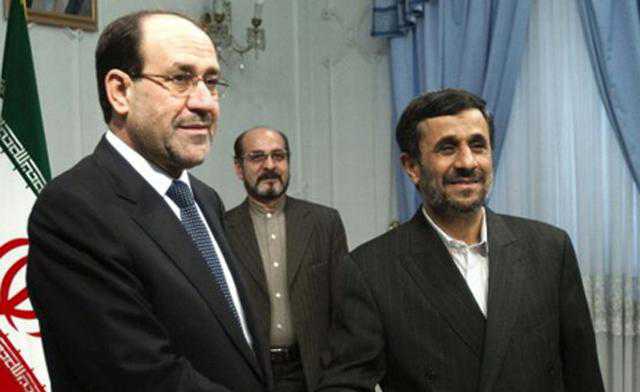The bloody and widespread crackdown on democracy protesters in Syria presents an opportunity for Turkey to reconsider its ‘zero problems’ foreign policy – and work with its NATO allies to change the ideological landscape of the Middle East.
By the Monitor’s Editorial Board / May 9, 2011
The increasingly violent crackdown on democracy protesters in Syria has become a test case for neighboring Turkey and its ties to the West.
As a member of NATO and the only democracy in the Muslim Middle East, Turkey has long boasted about “zero problems” on its borders. It actively sought to better ties with its neighbors, no matter their political persuasion. This approach has collected a string of successes, most notable Syria, with which Turkey almost went to war in 1998.
Since then, Turkish Prime Minister Recep Tayyip Erdogan has developed a warm friendship with Syria’s autocratic leader, President Bashar al-Assad. The two governments held joint cabinet meetings and military exercises. Trade surged.
But the limits of Turkey’s influence as a regional peace broker are now becoming clear. Despite Mr. Erdogan’s personal pressuring of Mr. Assad to reform, Syria’s forcible put-down and mass killing of hundreds of peaceful demonstrators has escalated to an alarming degree.
Similarly, after the democratic revolt began in Libya, Erdogan talked with Col. Muammar Qaddafi, offering him a plan to quit power and call elections. Mr. Qaddafi ignored him, though Turkey was instrumental in negotiations to free four New York Times journalists who had been detained by Libyan authorities.
Examples of “zero problem” failures extend further back in time: Turkey’s clumsy attempt to work out a nuclear-fuel arrangement with Iran; a severely strained relationship with Israel, in contrast to a time when Turkey had once facilitated Israeli-Syrian talks.
The reasons for Turkey’s limited success are multiple. Cornered dictators are not so easy to remove. As Erdogan said last week, he’s not sure whether Assad – who had appeared to be a reformer – has lost interest in change, or whether he is being overruled by others in his government.
Turkey also has tremendous stakes in preserving the status quo. For instance, it has billions of dollars in contracts to lose in Libya if Qaddafi falls. Turkey is also keenly aware of the threat of refugees pouring over its border if Syria collapses, and of the influence that Kurds in Syria could have on Kurd separatists in Turkey.
Perhaps it’s not merely a matter of preferring the status quo, but also of divisions within Turkey itself. Erdogan leads a mildly Islamist party, but secularists suspect his long-term intent is to defy Turkey’s strict separation of mosque and state. Is Erdogan perhaps a reluctant democrat? Turkish secularists, and NATO allies who complain of his overtures to Iran or his attacks on a free media, sometimes wonder.
Erdogan was ahead of the curve in calling for Egypt’s Hosni Mubarak to step down. But he has been slow to do the same for Qaddafi (he only called for it publicly last week), and likewise slow in his public condemnations of the Assad government. Neither he, nor the United States, by the way, has called for Assad’s ouster.
Turkey has an opportunity in Syria and other countries of the Arab Spring to stand much more firmly on the side of democratic protesters. True, there is only so much it can do. But it’s also not doing as much as it could.
What it really needs is to reassess its “zero problems” policy. That worked at a time of one-on-one crises with countries, and when the aim was to avoid conflict and improve business ties.
But there is an ideological sea change under way in the Middle East, and that requires a democracy like Turkey – as imperfect a model as it may be – to choose sides and stand squarely behind freedom advocates.
At this time in history, zero problems can no longer mean zero principles.
Turkey spent decades as a NATO member working with the West to contain the threat of Soviet communism. That was an ideological battle of great import to the progress of humanity.
Similarly, Turkey has a historic chance to swing solidly behind the democratic movement in the Middle East and North Africa. Hesitancy works to its detriment. It besmirches its credibility among protesters (Libyan rebels burned the Turkish flag because Ankara did not back the no-fly zone). Worse, its lack of definitive support makes it harder for democracy advocates to succeed.
As Turkey’s own president, Abdullah Gul, has written, “sooner or later the Middle East will become democratic.” Turkey, and its allies, must now make a strategic decision to back this movement – even when it’s inconvenient for them. And even at the risk of creating other problems.
via Syria a test case for democratic Turkey – CSMonitor.com.






 In this citizen journalism image made on a mobile phone and acquired Saturday April 23, 2011, by The Associated Press, Syrian anti-government protesters carry the coffin of an activist who was killed on Friday during his funeral procession in Quaboun near Damascus, Syria, Saturday, April 23, 2011. Syrian security forces fired on tens of thousands of mourners during funeral processions Saturday, killing several people following the deadliest day of the uprising against authoritarian President Bashar Assad. (AP Photo)
In this citizen journalism image made on a mobile phone and acquired Saturday April 23, 2011, by The Associated Press, Syrian anti-government protesters carry the coffin of an activist who was killed on Friday during his funeral procession in Quaboun near Damascus, Syria, Saturday, April 23, 2011. Syrian security forces fired on tens of thousands of mourners during funeral processions Saturday, killing several people following the deadliest day of the uprising against authoritarian President Bashar Assad. (AP Photo)